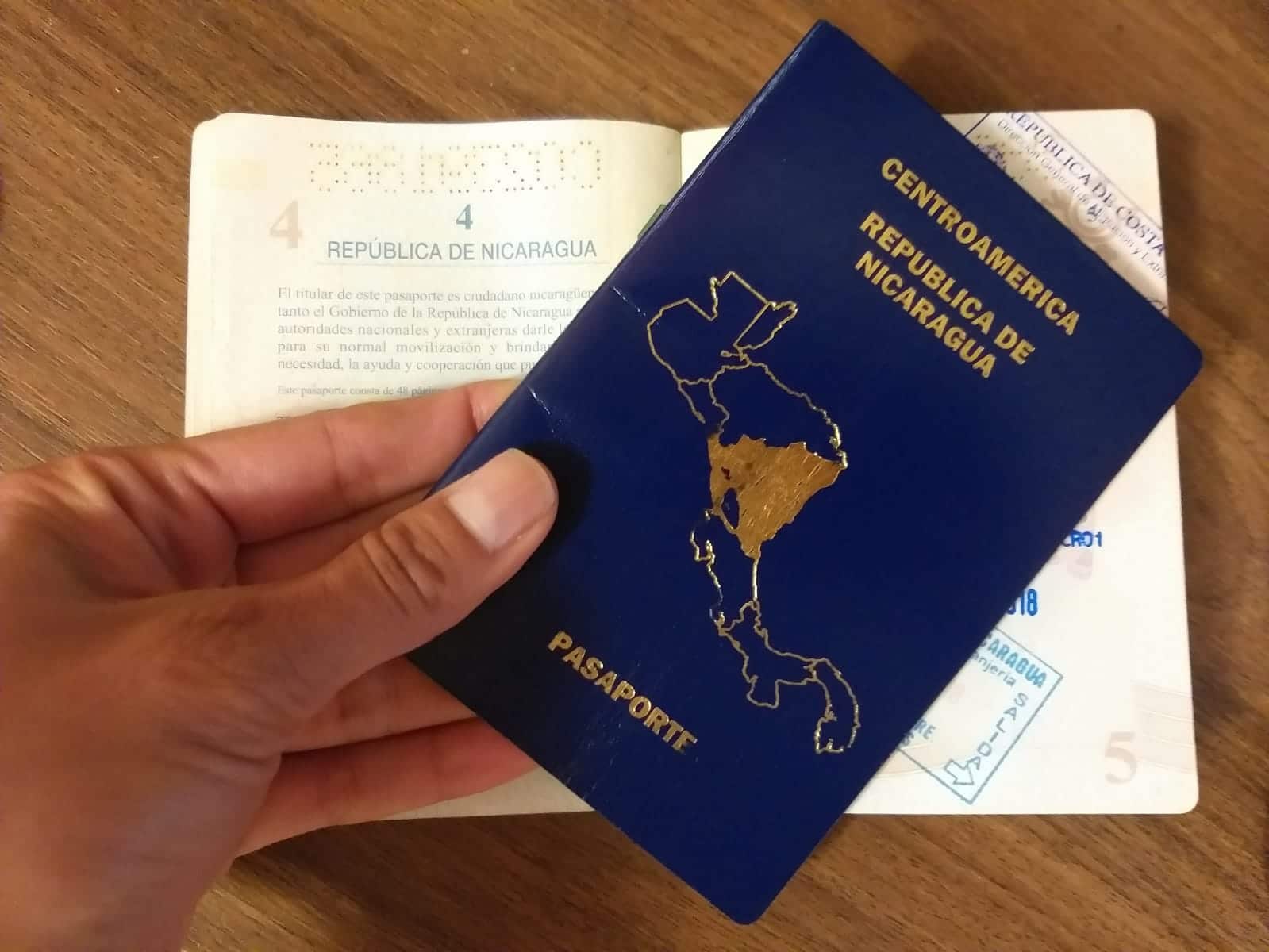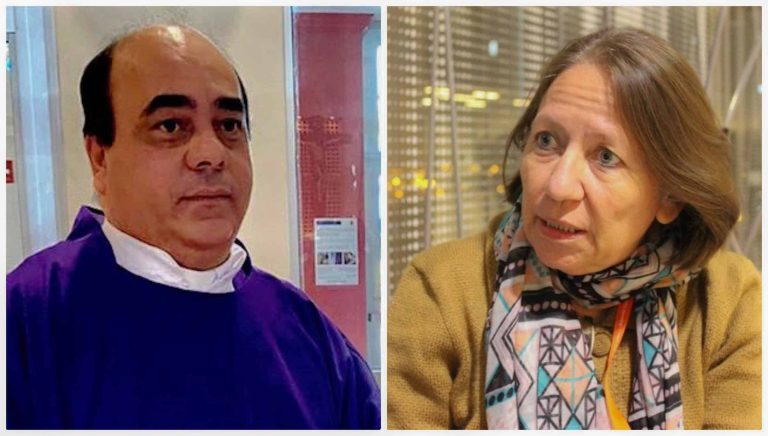16 de septiembre 2022

Nicaragua: Public Employees Hindered from Traveling to USA

PUBLICIDAD 1M
PUBLICIDAD 4D
PUBLICIDAD 5D
The priest Juan de Dios Garcia, and the director of the closed NGO La Corriente, Maria Teresa Blandon, were forbidden from entering the country

The priest Juan de Dios Garcia
The regime of Daniel Ortega and Rosario Murillo blocked the entry of the director of the banned La Corriente Regional Feminist Program, sociologist Maria Teresa Blandon, and the vicar of Santo Cristo de Las Colinas Parish, in Managua, priest Juan de Dios Garcia. Both were returning to Nicaragua, each one on their own, after a working trip.
Blandon left the country on June 24 through the Augusto C. Sandino International Airport, in Managua, where the immigration agents did “a long interrogation,” but she had no major difficulty to travel. It was not until her return, on July 1st, that she was notified by Avianca Airlines that she could not return to her country.
The sociologist explained that she complied with the regime’s immigration requirements, but when she arrived at the airport, two hours before taking the flight, the airline informed her that she could not board because “the Government had sent them a notification stating that I was forbidden to enter the country,” she stated.
For his part, Father Garcia left Nicaragua on an unspecified date and his return to the country was scheduled for Tuesday, September 13, but the immigration authorities notified him on two occasions by email that he is prohibited from returning to his homeland.
A Catholic Church source said that the priest —who in 2018 was the parish priest of the Santiago Church, in Jinotepe, and was moved to Managua because of the regime’s threats— was returning from vacation in the United States but was unable to board the plane.
Blandon said it is regrettable that in Nicaragua “we live under a dictatorship” which assumes the “right to decide who can live in Nicaragua and who can’t,” since this situation violates the most basic rights of Nicaraguans covered by the Constitution.
The banishment of compatriots “is something very offensive, very abusive,” the sociologist pointed out. Unfortunately, Nicaragua is already, after Cuba, the second Latin American country that resorts to “such abusive practices,” she commented.
Blandon also emphasized that “the Ortega-Murillo regime does not own Nicaragua,” but “is perverting, even, the basic principle of fellow nationals,” she added.
Finally, the sociologist commented that, in these two and a half months that she has been in forced exile, she is reorganizing her life and trying to continue “denouncing the Ortega-Murillo dictatorship and the systematic violation of human rights” of Nicaraguans.
In May of this year, the Ortega-Murillo regime annulled, raided, and confiscated the facilities of the Asociación Programa Regional Feminista La Corriente, headed by Blandon, arguing an alleged non-compliance with current laws. Something that the sociologist assures “has no legality” because those laws “infringe on what is established in the Constitution, which clearly establishes the freedom of association.”
The Law Regulating Foreign Agents orders NGOs to register as “foreign agents.” However, La Corriente decided not to do so because such legislation —which integrates a group of repressive laws made by the regime— “violated the Constitution and compels organizations to ascribe to a system that they invented,” explained Blandon in an interview with the online program Esta Noche.
“La Corriente decided not to register as a foreign agent because we do not fit in such a definition. We are a collective formed by Nicaraguans that has operated for almost 30 years in the national territory, which is composed by nationals. There is no reason for us to be declared as foreign agents,” assured the feminist.
Blandon further noted that the State “has no legitimate basis to try to intervene and control the dynamics of civil society organizations, as indeed, they had tried to do in the framework of the law approved at the end of last year.”
This article was originally published in Spanish in Confidencial and translated by Havana Times
Archivado como:
PUBLICIDAD 3M
Confidencial es un diario digital nicaragüense, de formato multimedia, fundado por Carlos F. Chamorro en junio de 1996. Inició como un semanario impreso y hoy es un medio de referencia regional con información, análisis, entrevistas, perfiles, reportajes e investigaciones sobre Nicaragua, informando desde el exilio por la persecución política de la dictadura de Daniel Ortega y Rosario Murillo.
PUBLICIDAD 3D